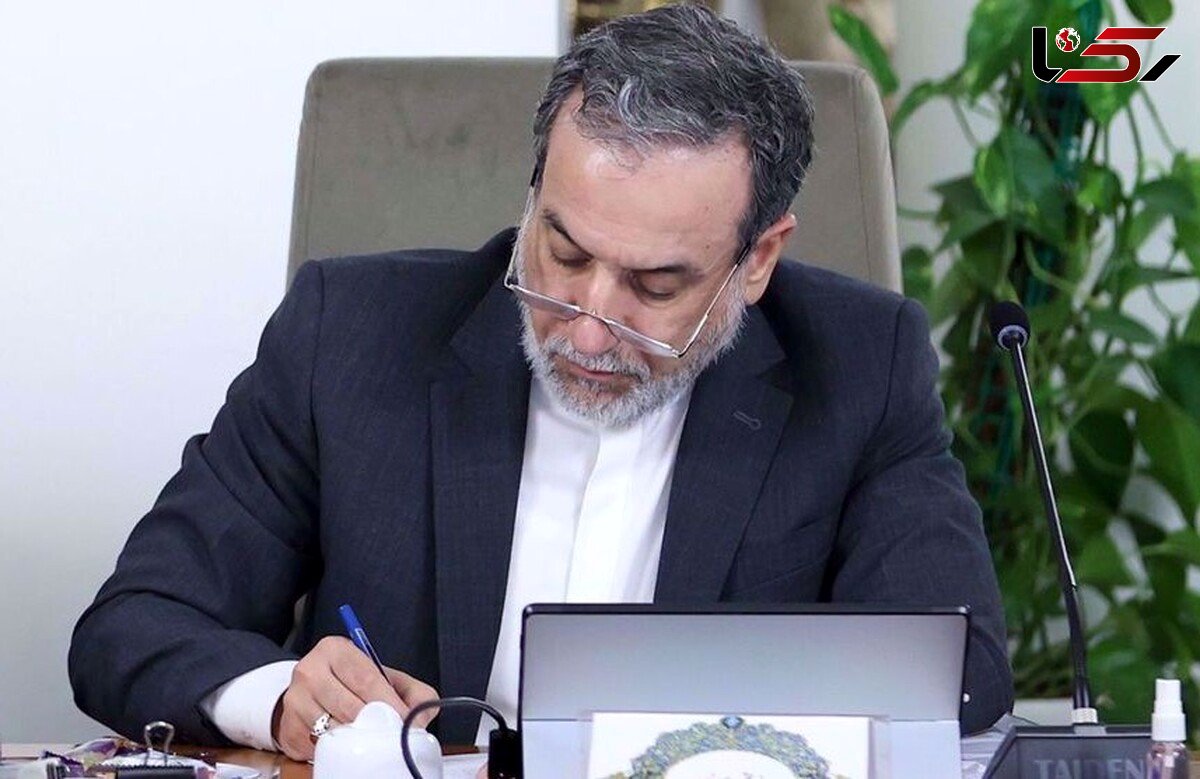Araghchi: Iran Remains Ready for Dialogue and Diplomacy; European “Snapback” Efforts Lack Legal Basis
Rokna Political Desk: Iranian Foreign Minister Seyed Abbas Araghchi emphasized that Europe must provide the necessary time and space for diplomacy to succeed. He stressed that, as he has warned his counterparts in the three European countries, their maneuver will not yield the outcome they seek.

According to the Iranian government’s official news portal, Araghchi wrote in a piece for The Guardian that Europe has been at the center of a manufactured and ongoing crisis surrounding Iran’s peaceful nuclear program for more than two decades. In many respects, Europe’s role reflects the broader dynamics of global power relations.
He added that Europe, once a moderating force seeking to restrain the United States’ maximalist ambitions in the region, has now become a facilitator of Washington’s overreach.
European “Snapback” Initiative Lacks Legal Basis
Araghchi noted that last week, three European countries—the United Kingdom, France, and Germany—announced that they had activated the process to reinstate UN sanctions on Iran. This mechanism was designed to address significant non-compliance under the 2015 nuclear deal, formally known as the Joint Comprehensive Plan of Action (JCPOA), signed between Iran, the three European countries, the U.S., China, and Russia.
He stressed that the European move has no legal foundation, primarily because it ignores the sequence of events that led Iran to take corrective legal measures under the nuclear agreement. According to Araghchi, the Europeans seek to erase the fact that it was the United States—not Iran—that unilaterally withdrew from the JCPOA. Moreover, Europe has ignored its own failure to fulfill commitments under the deal and even openly welcomed the U.S. strikes against Iran in June.
Selective Compliance Undermines International Commitments
The Iranian foreign minister added that, as highlighted by China and Russia, selective adherence to international obligations by the three European countries renders their actions null and void. While it may appear that the UK, France, and Germany act out of spite, in reality, they are pursuing a risky course in hopes of securing leverage at future negotiations.
He described this as a major miscalculation that will ultimately harm Europe. Araghchi highlighted that former President Trump clearly considered the three European nations as secondary actors, sidelined from issues crucial to their future, including the Russia-Ukraine crisis.
Historical Context and the JCPOA
Araghchi traced the history of European engagement, noting that when the European troika was formed in 2003 to restrain the Bush administration after the invasions of Afghanistan and Iraq, Iran welcomed the initiative. Negotiations faltered when Europe could neither present a credible proposal nor stand up to Washington’s demands. He recalled that Iran’s request to maintain 200 centrifuges for small-scale uranium enrichment was met with U.S. overreach enforced via the European countries.
After eight years of sanctions and centrifuge build-up—ultimately reaching 20,000 centrifuges, a hundredfold increase since 2005—two key developments paved the way for unprecedented dialogue: the tacit acceptance of Iranian enrichment by the Europeans and the U.S., and Iran’s recognition of the U.S. as a negotiating partner. This directly led to the signing of the JCPOA, establishing unprecedented monitoring and limitations on Iran’s nuclear program in exchange for sanctions relief.
JCPOA Is an Action Plan, Not a Treaty
Araghchi clarified that he deliberately uses the term “suspension of participation” because the JCPOA is an action plan, not a treaty, and therefore has no withdrawal clause. In response to the U.S. withdrawal in 2018 and the reimposition of sanctions, the European countries publicly pledged to compensate for the breach, but none of these promises materialized. Iran has repeatedly indicated that if the Europeans can prove even one of their commitments under the deal, it would willingly forgo the automatic snapback mechanism.
Europe’s Double Standards
The minister criticized Europe for expecting Iran to unilaterally comply with restrictions while failing to fulfill its own obligations. He condemned European reluctance to denounce U.S. attacks on Iranian facilities in June and emphasized that their current claim—that Iran refuses dialogue—is unfounded. Araghchi warned that such actions will only marginalize the European states in future diplomatic processes, with wide-ranging negative consequences for their credibility and global standing.
Iran Remains Open to Dialogue
Despite these challenges, Araghchi affirmed that Iran remains ready for sincere dialogue and diplomacy. He stressed that to exit this current lose-lose situation, the European countries must change their destructive path—not to appease Iran, but for their own strategic interests. Iran is prepared to negotiate a genuine, sustainable agreement involving rigorous monitoring and limitations on enrichment in exchange for sanctions relief.
Military Readiness and Regional Security
Araghchi also underscored Iran’s military readiness, citing recent events in June as proof that Iranian forces remain capable of decisively confronting Israel, which, if attacked, would seek protection from the U.S. He noted that failed Israeli operations this past summer cost billions in U.S. taxpayer money and depleted critical military equipment, highlighting the risks of aggressive actions against Iran.
He concluded by urging Europe to provide the necessary space for diplomacy to succeed, warning that failure to do so would yield undesirable consequences for the region and beyond.
Send Comments